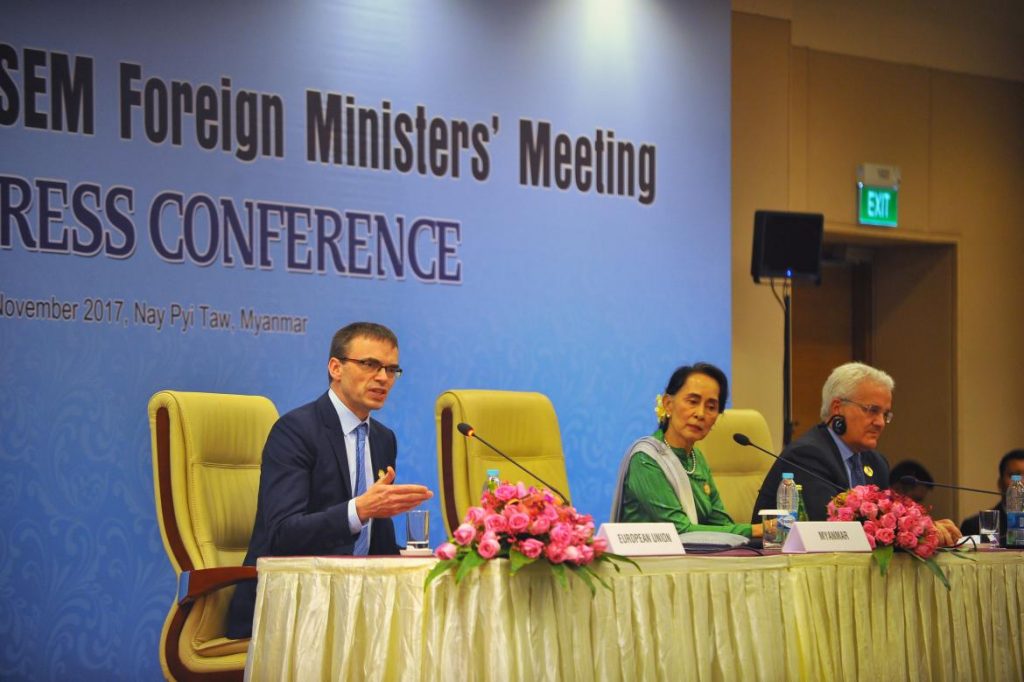The final statement from Asia-Europe Meeting in Nay Pyi Taw this week said it paid special attention to “unprecedented humanitarian emergencies” but there was no mention of Rakhine State.
The statement was issued late on November 21 by State Counsellor and Minister of Foreign Affairs, Daw Aung San Suu Kyi, in her capacity as chair of the two-day ASEM foreign ministers’ meeting. It was attended by 51 ministers from Asian and European countries, as well as the European Union foreign policy chief and a deputy secretary-general of the Association of Southeast Asian Nations.
The 36-point statement, headlined ‘Strengthening partnership for peace and sustainable development’, said the ministers had expressed a commitment to achieving stability in Afghanistan, and had discussed the Middle East peace process, and the conflicts in Syria and Yemen.
There was no mention of the humanitarian crisis affecting more than 600,000 Rohingya Muslims who have fled northern Rakhine State since late August to escape violence after attacks by Islamic extremists led to a massive counter-insurgency operation by the Tatmadaw.
“Ministers devoted particular attention to the unprecedented humanitarian emergencies, irregular migration and refugee challenge [sic], smuggling and trafficking in persons occurring in Asia and Europe,” the statement said.
Support more independent journalism like this. Sign up to be a Frontier member.
“Ministers stressed the need to tackle the root causes of irregular migration, refugee problems and forcibly displaced people, and to intensify cooperation on return and readmission …,” it added.
The statement said the ministers had reiterated that terrorism
constituted a serious threat to international peace, security, stability and development.
They also expressed determination to countering terrorism and preventing violent extremism in all forms in accordance with international law, including the Charter of the United Nations, and relevant conventions, and “in particular human rights law, refugee law and international humanitarian law”.
“They also emphasised the need for a comprehensive approach in countering terrorism and violent extremism, without associating them with any religion, nationality, civilization or ethnic group,” the statement said.
In an opening address at the event on November 20, Aung San Suu Kyi expressed concern about the consequences of conflict.
“Conflicts around the world are giving rise to new threats and emergencies; illegal migration, spread of terrorism and violent extremism, social disharmony and even the threat of nuclear war,” she said, according to an official transcript of her speech.
“Conflicts take away peace from societies, leaving behind underdevelopment and poverty, pushing peoples and even countries away from one another,” Aung San Suu Kyi said.







